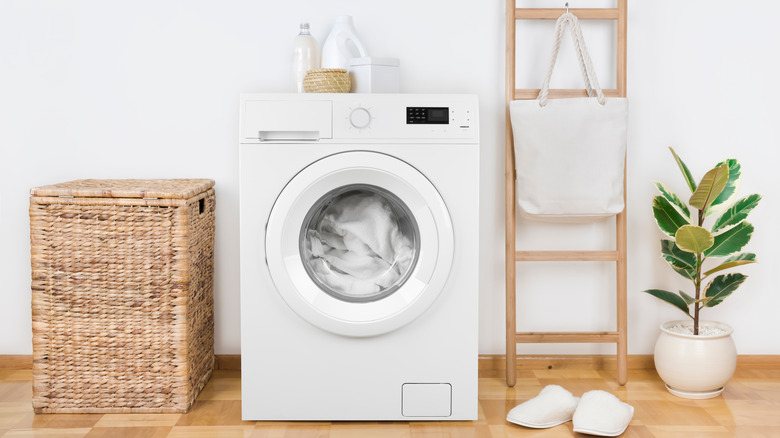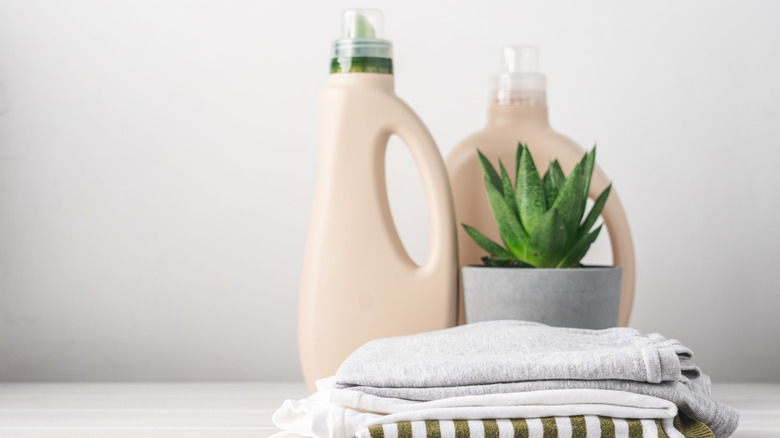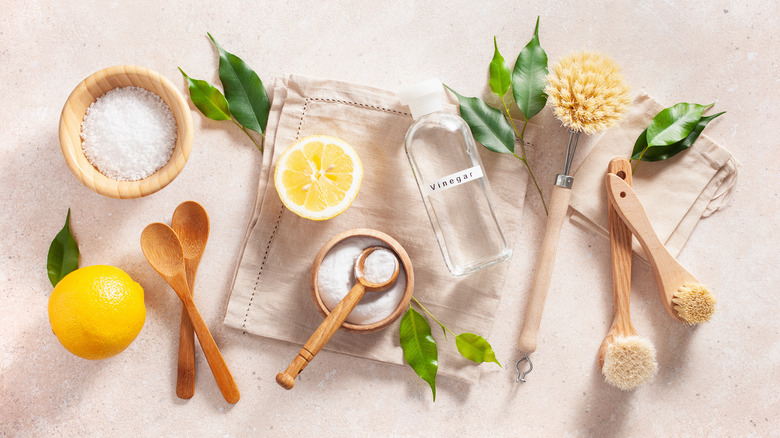Why You Should Stop Using Homemade Laundry Detergents Immediately
Homemade cleaning products may seem like a great option for those who love saving money, DIYing, and using more natural ingredients. People who fit into these categories may make their own homemade laundry detergent. DIY Natural says the best homemade detergent recipe includes three ingredients: shaved bar soap, borax, and washing soda. Mix these ingredients and keep them in a sealed jar for a homemade detergent. Others may use a detergent substitute only when they run out of commercially sold detergent. In a pinch, some substitute detergent with baking soda and lemon. They wash with 1/2 a cup of baking soda, then add 1/2 a cup of lemon juice to the rinse cycle.
However, some hidden downsides to using homemade laundry detergent may make you stick with your commercially sold cleaners. Homemade detergents can actually harm your clothes, damage your washer, and may not be as safe as you think.
The negative side effects of homemade detergent
Dropps explains that homemade laundry detergent actually isn't detergent at all — it's really soap. While both soap and detergents are surfactants, meaning they help cleaning agents spread and get rid of grime, detergent is much more effective. This is because detergents typically contain multiple surfactant ingredients. According to Sparkling Penny, homemade detergents are also not as effective in removing stains or whitening whites.
Homemade detergents cannot be used in hard water. This is because homemade detergents, unlike commercially sold cleaners, don't contain chemicals that prevent the minerals in hard water from hindering the cleaning process, per 21 Oak. This could cause a soapy film or a stiff feeling to be left on clothes. Also, the mixture of hard water and homemade detergents can cause a build-up of film inside your washing machine, per Dropps. This could lead to mold and mildew.
Homemade detergents are also not as effective when used in cold water, per 21 Oak. And, when using homemade detergents, multiple rinse cycles may be needed. This is because homemade detergents don't contain ingredients that speed up the rinsing process like commercially sold laundry detergents. Finally, homemade detergents may not be as safe as you might expect. Dropps points out that commercially sold products are tested for safety, while homemade cleaners are not.
Why some still choose homemade detergent
However, even with these adverse side effects, some may still choose to use homemade detergents for several reasons, as described by Sparkling Penny. First, homemade detergents are much cheaper than commercial ones. Second, they're more environmentally friendly because they don't contain phosphates. Third, using a homemade recipe reduces the use of plastic bottles. Fourth, homemade laundry detergents are better for those sensitive to certain fragrances or chemicals.
They're also easy to make and contain ingredients already in your home. Those who make their own detergents are completely in control of the ingredients. They get to decide how their detergent smells (or doesn't smell) and know exactly what ingredients they use on their clothes.
If you still choose to use homemade detergents, you may need to add other products to make them more effective. To remove stains, you can use a stain-removing spray. To whiten whites, you could use OxiClean or an OxiClean substitute.


